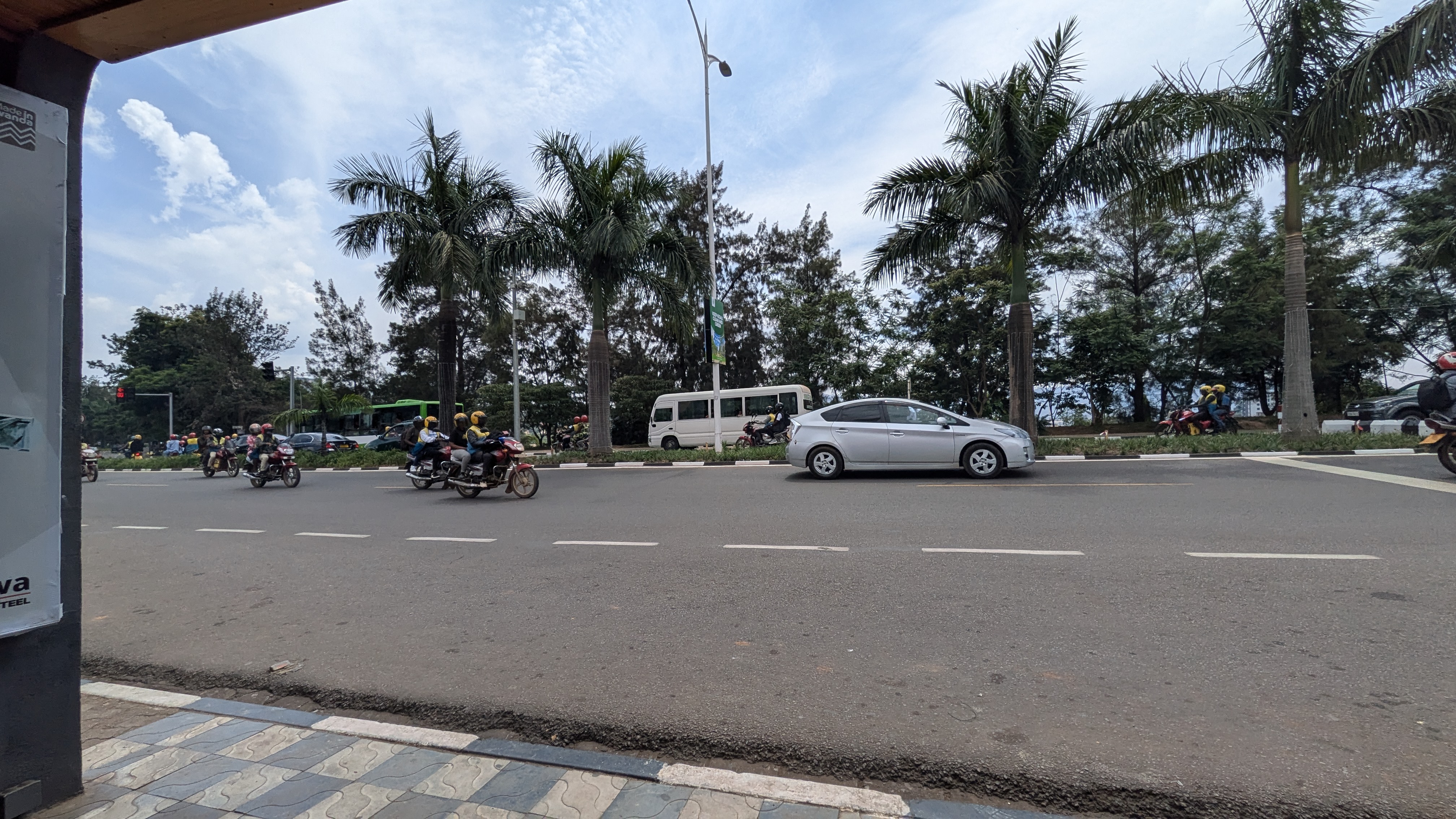Navigating Kigali- motorbikes and an accent
In Kigali, Rwanda one of the major forms of transport is using a motor taxi. Here you can find them riding along most roads or parked at a corner waiting for passengers.
Here’s a photo I took at a bus-stop showing the bikes on the move in Kigali.

For foreigners from other African countries the bike riders have been known to increase prices, however this behaviour is not new for most cities even in other African cities such as Accra and Nairobi. This might happen once they realize you do not speak the local language, Kinyarwanda. Partly for this reason I have been brushing up on my Kinyarwanda skills to be able to navigate Kigali as easily as a local. Also because I want to at least communicate properly in the language after living in Rwanda for some years.

(Image credit: Richard Djarbeng’s photo of a painting at Pili Pili restaurant)
However there are some nuances when it comes to blending in.
I once told a bike rider I was going to Kimironko in my best Kinyarwanda hoping to blend in as a local. He paused looked at me and said, ‘Where are you going?’ in English. My cover was blown. We negotiated in English, and I resigned myself to likely paying a higher fare.
That encounter taught me a key lesson: apparently locals don’t pronounce “Ki” as “Kim” (like the name) but closer to “Chim” (almost like chimney) or “Kyi.” It’s a subtle difference, hard to capture in English. So, it’s not Ki-mironko but Kyi-mironko. Talk about a dead giveaway the moment I opened my mouth.
At least that’s one Kinyarwanda lesson that I’ll remember.
In case you are noticing that Kigali and Kinyarwanda start with K-I and wondering whether the pronunciation applies, yes, yes it does. They usually say Kyi-gali city and Chi-nyarwanda, though the difference is tough for English speakers to catch. I suppose that’s one way to blow your cover as foreigner in Kigali, sorry, in Kyi-gali city.